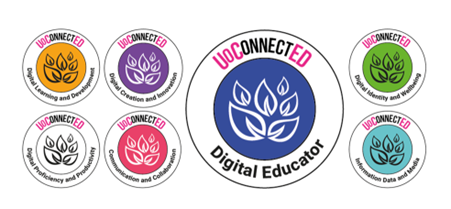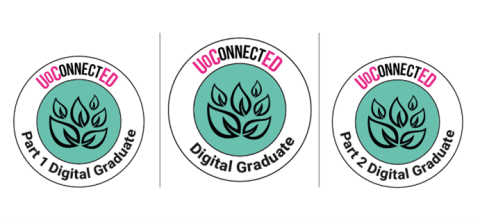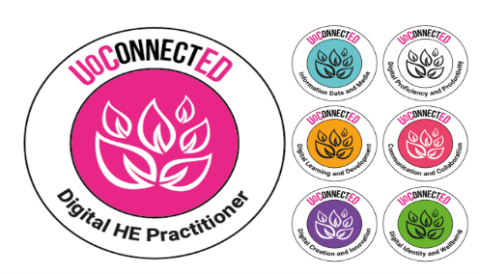
A whole-organisation approach to digital upskilling is the way forward
The challenge of digital transformation is one universities must rise to, or be left behind. Amanda Taylor-Beswick advocates for an organisation-wide approach

You may also like
In the post-pandemic world, universities are actively engaging in digital transformation, integrating digital technologies into all aspects of business operations, fundamentally altering how the sector functions and delivers value.
Commonly seen in the business world, this transformation is characterised by the use of digital tools and approaches to streamline operations, increase efficiency and develop innovative models.
- How to develop a digital competency framework everyone can benefit from
- Why is digital transformation such a challenge for HE?
- What’s next for AI in higher education?
But this shift poses a challenge to traditional higher education purpose, processes and practices, especially for a sector previously slow to engage with the implications of ignoring these changes. In fact, there have been some regressive aspects to the return to business as usual, diminishing what the sector achieved through its digital pivot and the innovation, expertise and strength within the academic community to effect large scale change.
It has become increasingly urgent for universities to take stock of the learning gained throughout the global health crisis, and to respond to the evolving needs and learning preferences of students and learners. Higher education is increasingly made up of people who are accustomed to the digital environment and an agile, mobile and seamless digital experience in their daily lives. Universities must offer modern and flexible learning content and experiences, incorporate online and blended learning options, and use technology to support personalised education. The post-digital generation of learners expect the integration of technology in their education, and universities need to meet these expectations to remain competitive and relevant.
The World Economic Forum asserts that organisations that “do not digitally transform will be left behind and will cease to exist”. Universities leave themselves in a position of unnecessary risk if they fail to take on the challenge.
At the University of Cumbria (UoC), we have established a Centre for Digital Transformation (CDT) to address the challenges posed by the Fifth Industrial Revolution. CDT has as its focus the significance of how new and emerging technologies are shaping how we live, learn, work and engage with the world, with an eye to how universities will need to respond.
Central to this work has been adopting an analytical, critical and comprehensive approach to our digital transformation projects, while holding true to our values and the value that universities bring: teaching, learning, knowledge exchange and research activity.
The UoConnectED Digital Educator microcredential
One such strand of work involved maximising the use of existing digital infrastructure and re-assessing our approach to the digital capabilities development of our educators, students and professional services staff. This resulted in the development of the UoConnectED Digital Educator microcredential, designed to facilitate the digital development of our students through the digital upskilling of our educators. The UoConnectED Digital Educator microcredential is grounded in the JISC role profile for HE Educators and involves six aspects to digital capability development.

Upon completion, which involves a light-touch online multiple-choice assessment of each of the six aspects of the role profile, participants each earn a badge. When all aspects have been completed, they are awarded the Digital Educator Badge.
The UoConnectED Digital Graduate microcredential
For students, we have designed and developed the UoConnectED Digital Graduate microcredential, also hosted on the university virtual learning environment Blackboard.
There are three parts to the overall student digital capabilities development microcredential:
- Moving into HE: for students who are new to higher education;
- Moving through HE: relating to the digital knowledge and skills needed within higher education, including subject or disciplinary digital upskilling;
- Moving on from HE: offering a space to review digital readiness on and beyond graduation.

This digital enhancement project was designed so that it could be embedded in any programme structure, including the traditional three-year standard undergraduate timeline or apprenticeship programmes. It’s timed to feature at junctures that support development and completion.
For apprenticeship programmes, the project offers opportunities to attend to the digital requirements outlined by the Institute for Apprenticeships and Technical Education. This is a framework for digital development that builds upon the government’s Essential Digital Skills Framework, which includes the foundation digital skills required by citizens.
The Digital Graduate microcredential addresses generic functional technical digital capabilities, alongside subject- or discipline-specific digital curriculum content, which is now included more explicitly within our programmes of learning. It addresses the need for programmes to have real-world relevancy and to provide the student with opportunities to be and feel real world-ready.

The UoConnectED Digital HE Practitioner microcredential
In closing the loop, we designed the UoConnectED Digital HE Practitioner microcredential. This required the help of our executive assistant colleagues, who entered into a digital capabilities development needs analysis process, using the JISC role profile for HE Professional Services. Having insights into the digital practices and processes of our EA population has allowed us to map interoperability across the organisation, further illuminating the key role professional services teams play in shaping digital maturity and culture in higher education institutions.
This whole-organisational approach is enabling UoC staff and students to gain generic and foundational digital capabilities. The university community has responded particularly well to the decision to match our badges to our branding and how they can then be used for continuous professional development evidence and showcased on CVs, email signatures and professional social media profiles.
Amanda Taylor-Beswick is professor of digital and social sciences at the University of Cumbria.
Acknowledgement: Lydia Fazakerley designed and delivered on the build of the content on the University Virtual Learning Environment.
If you would like advice and insight from academics and university staff delivered direct to your inbox each week, sign up for the Campus newsletter.


